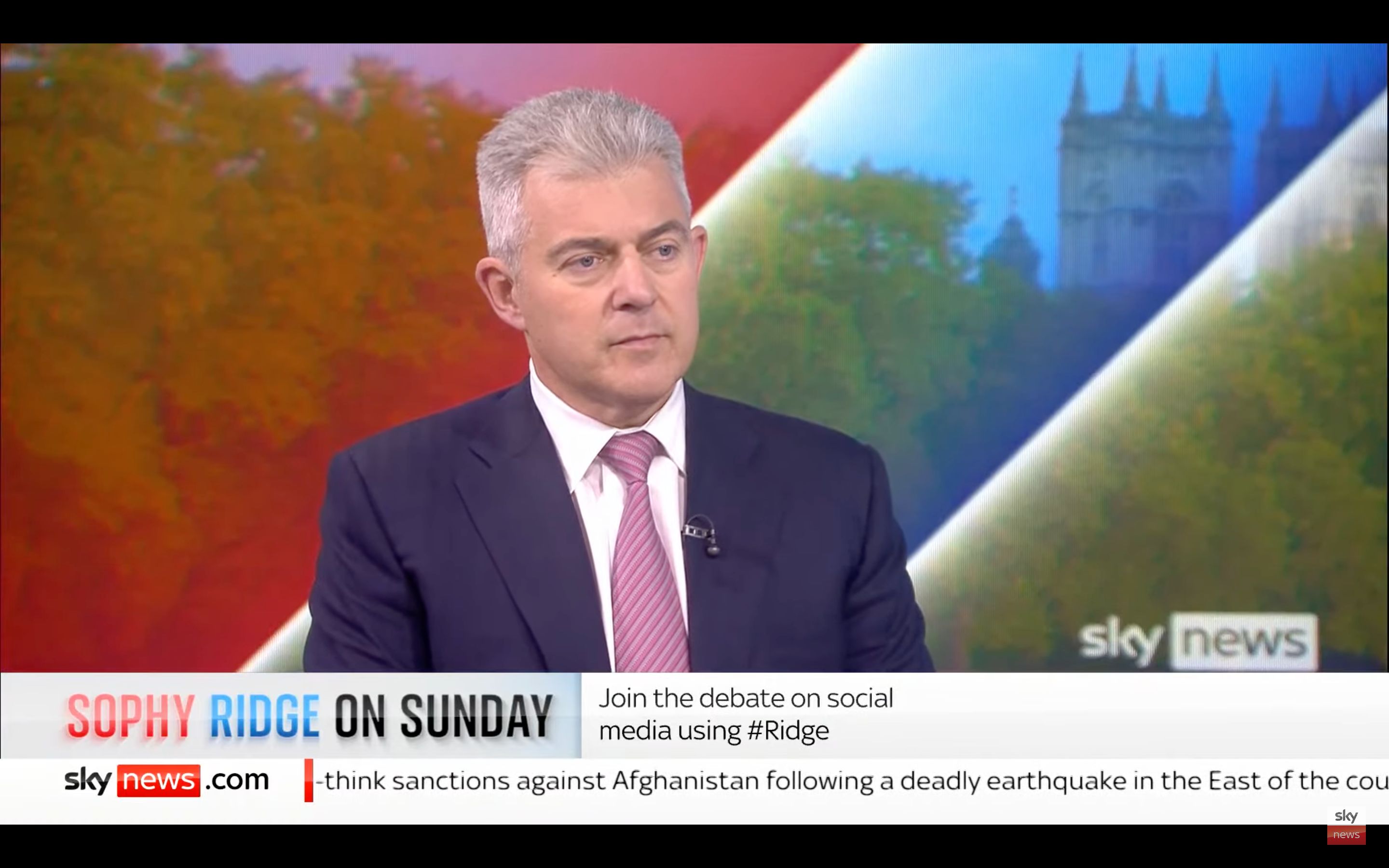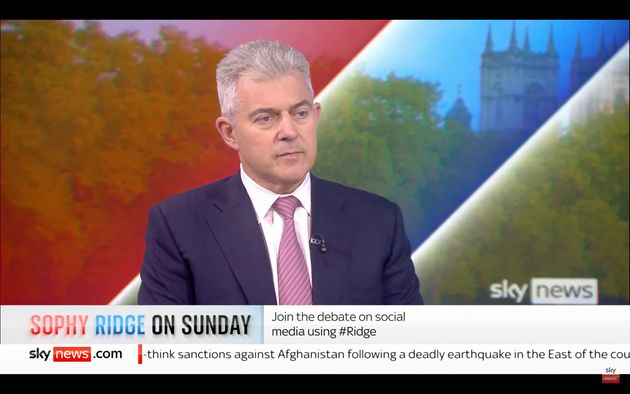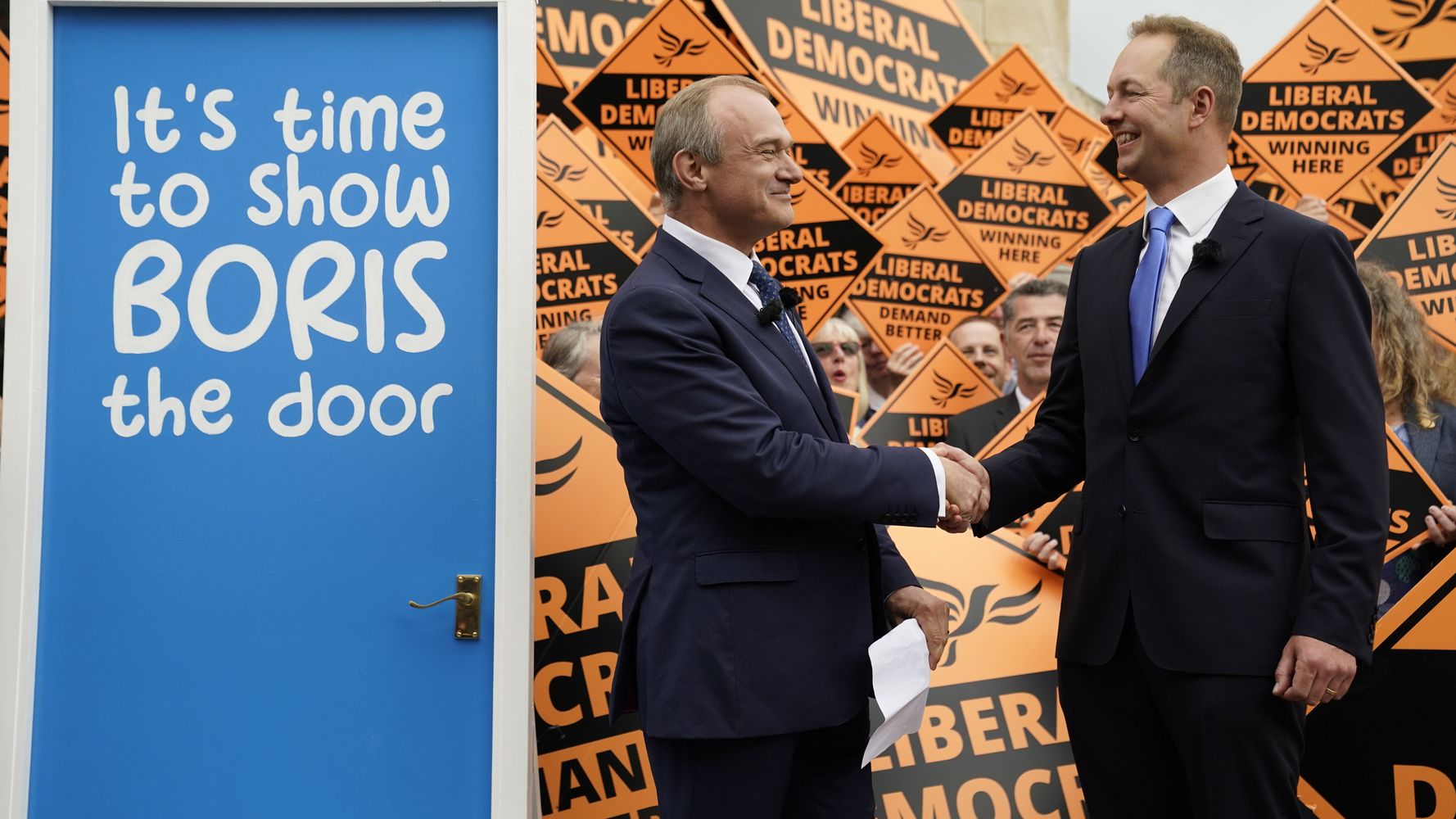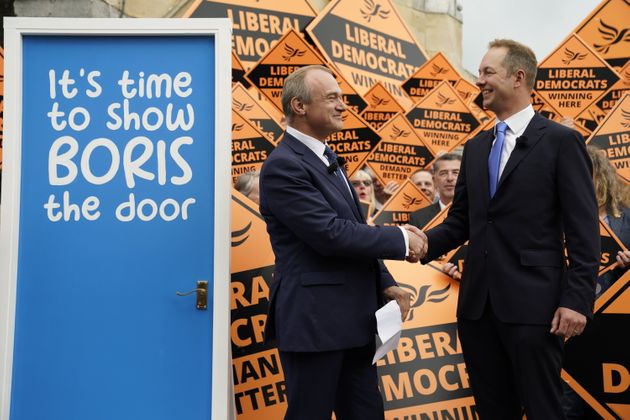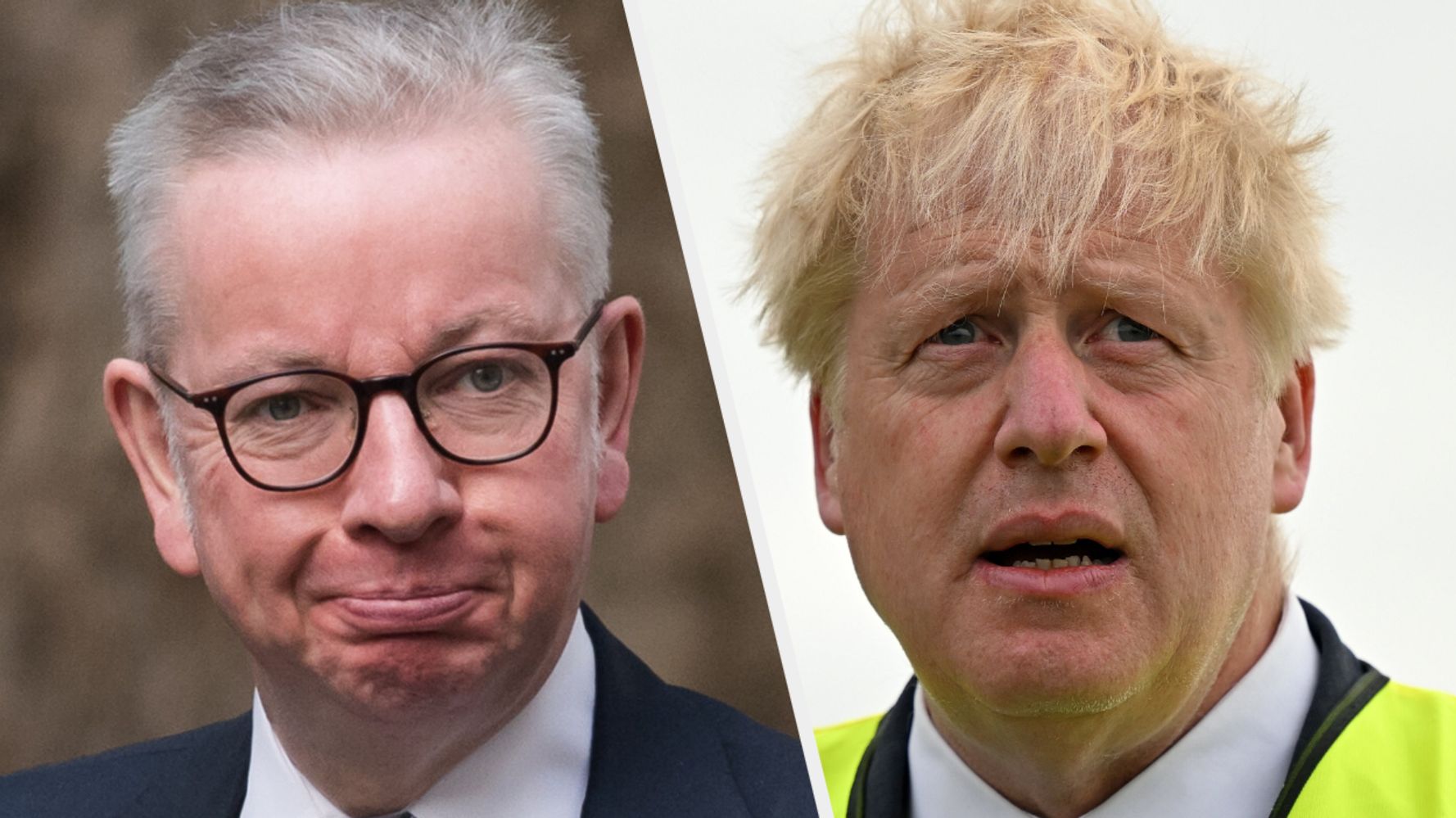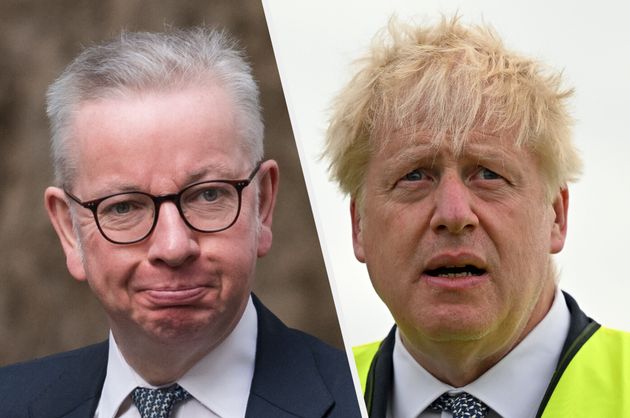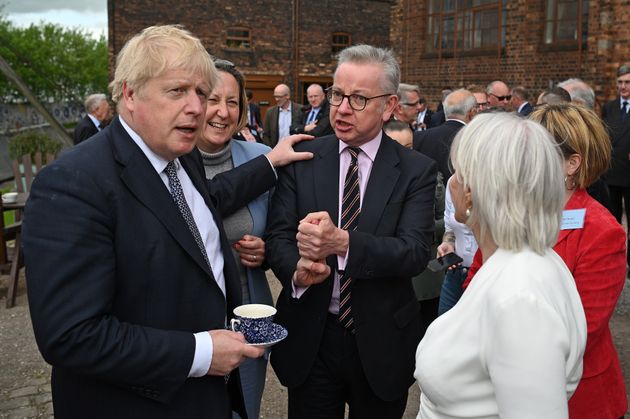Operation Save Big Dog moved up a gear today as a raft of tactics were revealed to help the PM hold on to power.
They include “barbecues and drinks” with loyal supporters at his grace-and-favour residence Chequers.
Advertisement
An invitation list has been drawn up to include MPs who publicly said they would back Johnson in the confidence vote, according to the Mail on Sunday.
Johnson’s so-called “summer sausage offensive” is planned for several events in the second half of July, insiders told the paper.
Meanwhile, the prime minister apparently wants to get Volodymyr Zelenskyy to address the Tory party conference, according to the Sunday Times’ Tim Shipman.

JEREMY SELWYN via Getty Images
Advertisement
Ministers have reportedly discussed offering the Ukrainian president a full-blown state visit to the UK, including an audience with the Queen.
No.10 aides reportedly think it is a long shot but party officials would like him to be “guest of honour” at the Tory Party conference in Birmingham in October – potentially addressing the conference via a video link.
A source told the paper that Tory HQ “likes” the idea but Johnson is wary of “cheapening” a state invitation by adding something party political.
And, in another attempt to reset the prime minister’s leadership, tariffs on steel imports are set to be imposed in a bid to win back support in Red Wall seats.
Johnson will risk fresh allegations that he is breaking international law this week with new import limits designed to protect UK manufacturers from cheaper steel from overseas.
Advertisement

Anadolu Agency via Getty Images
The PM told reporters at the G7 summit in Germany that lifting the restrictions on cheap supplies from developing countries would not be the “right way forward”.
It comes after a tough few weeks for Johnson including a bruising confidence vote in which 41 per cent of Tory MPs voted for his removal.
Last week the Conservative party was also wiped out in two crunch by-elections in Tiverton and Honiton and Wakefield.
There were fresh calls for Johnson’s resignation on Thursday, with warnings from two former Tory leaders, Lord Howard and Lord Hague.
Advertisement
The losses have spurred on Tory rebels who are plotting their next move to oust Johnson by pushing for a party rule change to allow a second confidence vote in his leadership.
Tory MPs who want to remove Johnson are seeking election to the 18 most senior posts on the backbench 1922 Committee, which dictates how to conduct confidence votes in Tory party leaders.
Johnson won a confidence vote earlier this month – despite 41 per cent of Tory MPs voting for his removal.
Under current rules, another vote cannot be held for a year. However, rebels want that rule scrapped – which could be possible if 10 out of the 18 senior committee members back it.
However, the PM has brushed off threats to topple him with an astonishing prediction he will lead Britain into the 2030s.
Johnson stunned MPs plotting his downfall by insisting he is already thinking well beyond the next election and planning for his third term.
Rebel Tory Andrew Bridgen, who is leading the charge for a second no confidence vote, told the Sun on Sunday: “When I heard he plans to stay until 2030, I thought he was talking about the 24-hour clock.
“I’m more than happy for him to stay until 20:30. He can even stay until nine o’clock if he wants – so long as he’s gone before parliament breaks up for summer.”
Asked if he was being delusional by talking about being PM into the 2030s, Johnson told reporters at the G7 summit in Germany: “What I’m saying is this is a government that is getting on with delivering for the people of this country and we’ve got a huge amount to do.”
A close ally of Johnson recently told The Telegraph: “You will have to drag him out by his fingernails.”





